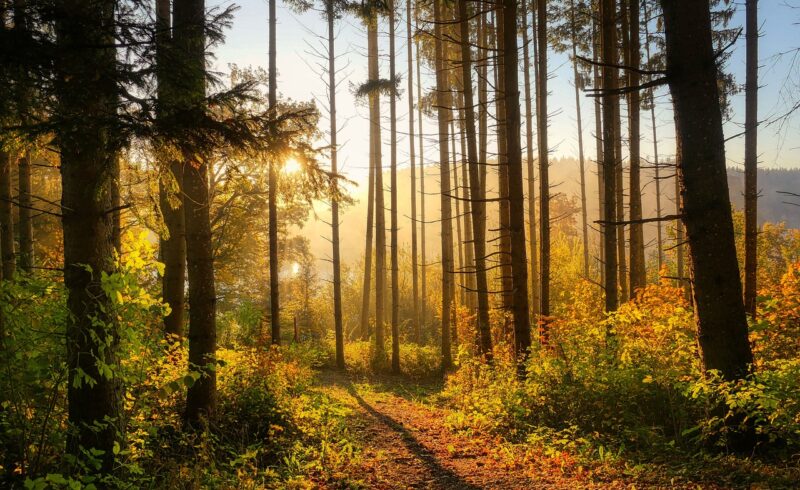
Forests only cover around 10% of the planet, but the diversity in their ecosystem is unmatched by other biomes. This makes them very important to the planet. The more diversity you have in an ecosystem, the less likely environmental changes are to severely hurt the ecosystem (https://standfortrees.org/blog/forest-facts/). Forests are incredibly interesting, and scientists are learning more about them every day. Below are four of my fascinating facts about forests to help you learn more about how they thrive.
Fact #1: Rainmakers
Forests can make their own rain. This has to do with the Biotic Pump Theory, which is when forests move a large amount of water from the soil into the atmosphere and end up creating rain in the forest. Trees and plants within the forest soak up water from the soil and then expel it into the air. Eventually, the water being released builds in the air and causes rain to fall. Over 40% of the rain we get on land is made because of evaporation and plants expelling water into the air.
Fact #2: Undiscovered Species
It’s been said that because the ocean is so vast, there are probably a large number of undiscovered species living in its depths. However, on land, the tropical forest is suspected to have the highest number of undiscovered species. Scientists have just recently discovered several new species, including the olive-backed forest robin and multiple different electric eels. They have also found the olinguito, which is the first carnivore to be discovered in about 35 years. Many efforts are being made to identify new species in forests all over the world.
Fact #3: Carbon Absorption
Tropical forests hold much more carbon than humans have emitted. This is fascinating, because it shows the importance of protecting forests from deforestation. Trees and plants need carbon in order to make food for themselves. This means that they take in carbon that we expel and use it to make nutrients, releasing oxygen as a by-product. These forests keep carbon from being released straight into the atmosphere.
Fact #4: Immune System Benefits
Spending time in a forest can boost our immune system. Japan has an interesting practice called “shinrin-yoku”, which translates to “forest bathing.” People in Japan benefit from this practice and have decided to share it with the world. Research has shown that being in the forest can increase feelings of peace and relaxation, while also increasing the activity of your immune system. It has been found that plants and trees have essential oils that keep them from being eaten by insects and predators, while also protecting them from bacteria. These essential oils are inhaled by humans who spend time in forests and can increase the number of protective cells produced in the human body. These protective cells are important because they help fight off viruses and bacteria.
So, the next time you feel like going on a hike, find a forest to explore!










